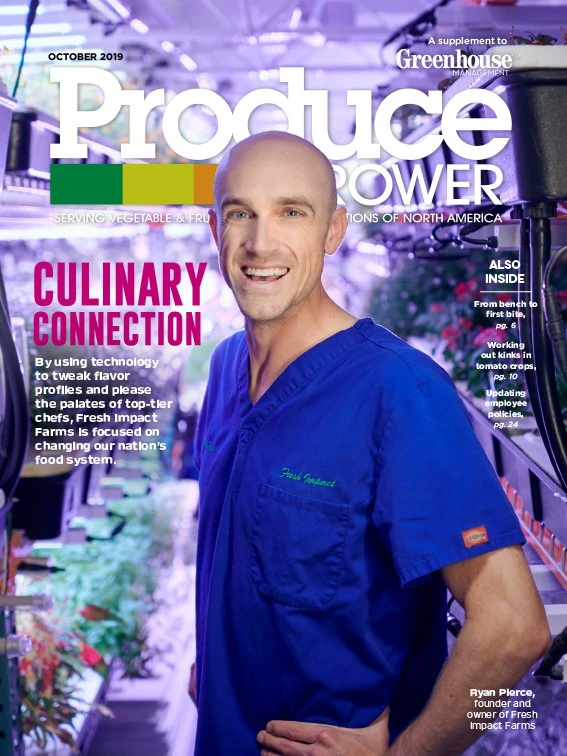

North Iowa Fresh was founded last year through a grant proposal aimed at making locally produced food more accessible to the surrounding community. The result is a CSA program made up of 18 different local growers and food producers, covering an area of about 60 miles in the northern rural part of the state. Iowans interested in joining the program called Bounty Box can pay anywhere from $75 to $685 for varying amounts of local food delivered to a pickup location near their home. Items included in the different shipments include various eggplant varieties, cucumbers, tomatoes and different types of leafy greens.
“Connecting local people to the local food market is the goal,” says Andrea Evelsizer, North Iowa Fresh broker. “It’s about giving local producers a different way to sell what they are growing.”
Produce Grower: What has the local reception been to the price points and the concept as a whole?
Andrea Evelsizer: We get all sides of that, depending on people’s readiness for local. The people who are getting the box now recently took a mid-season survey and we generally got extremely good feedback from people saying they are getting a good value for their box and that they are happy with the stuff they are getting for that cost.
Of course, there is a flip side where people do think it’s too expensive and that they can go to the grocery store and buy cheaper. But people who are familiar with the local market and buying from a farmers market are, in most cases, satisfied.

PG: How are producers vetted and deemed to be of the standard you’re looking for?
AE: We work off of a producer’s manual, so all of our products that we are selling have specifications mostly related to standards within the wholesale industry because we are also marketing towards grocery stores and restaurants. We need to be in line with what their expectations are for produce in general. There may be some small blemishes, but it’s pretty strict.
Food safety-wise, our producers are mandated to take food safety training and they are required to comply with record-keeping for things like refrigerator temperatures on their farm, transportation vehicles and cleaning.
PG: Do you think this model is replicable in similar communities around the country?
AE: I do. I think a couple of the biggest things that we’ve done, that are things to keep in mind, are that we have focused on not owning any infrastructure — North Iowa Fresh does not own trucks, the aggregation facility or anything. We rent for the portion of the year that we need them. We contract employees so we are not having employees, so that really limits the overhead of our business. Produce sales have small margins and it’s hard to make it work in a small area where costs are high. The readiness for local is low too, generally. Most people are happy just shopping at the grocery store, as opposed to other cities where local is a bigger trend.

Explore the October 2019 Issue
Check out more from this issue and find your next story to read.
Latest from Produce Grower
- PG CEA HERB Part 2: Analyzing basil nutrient disorders
- University of Evansville launches 'We Grow Aces!' to tackle food insecurity with anu, eko Solutions
- LettUs Grow, KG Systems partner on Advanced Aeroponics technology
- Find out what's in FMI's Power of Produce 2025 report
- The Growth Industry Episode 3: Across the Pond with Neville Stein
- The Growth Industry Episode 2: Emily Showalter on how Willoway Nurseries transformed its business
- 80 Acres Farms expands to Georgia, Texas and Colorado
- How BrightFarms quadrupled capacity in six months






